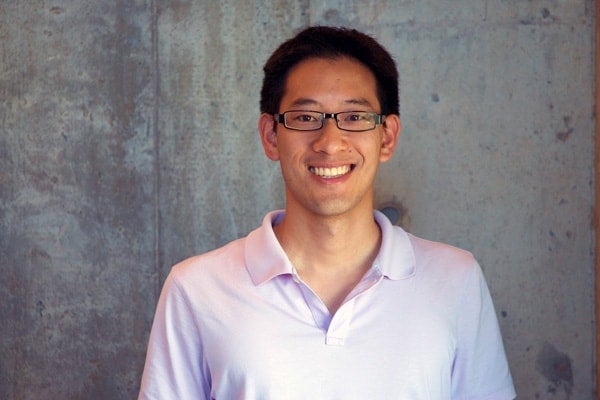
Innovations for developing countries: Grand Challenges Canada
Published: November 21, 2013
Eight University of Toronto researchers just got a big boost for their work in the developing world, thanks to grants from Grand Challenges Canada (GCC).
Their research includes such projects as implementing a low-cost test for diagnosing malaria in Tanzania and reducing ambulance response times in Bangladesh.
The U of T researchers have been granted a collective $890,095 from GCC, through its “Stars in Global Health” program. The focus of the funding – which comes from the Government of Canada – is on health care innovations that could transform the way disease is treated in the developing world.
“Innovation powers development, leading to better health and more jobs. I feel proud that Canada, through Grand Challenges Canada, has supported almost 300 bold ideas to date in our Stars in Global Health program,” said Dr. Peter A. Singer, chief executive officer, GCC and a professor in U of T’s Faculty of Medicine. “This is one of the largest pipelines of innovations in global health in the world today.”
In addition to the projects of U of T researchers, GCC funded 75 other initiatives being led by researchers from a variety of other countries.
“On behalf of the U of T research community, congratulations to these global health experts,” said Professor Paul Young, vice president, research and innovation at U of T. “We are thrilled that these scientists are contributing to the global fight to improve health and health care in developing countries.
"The health challenges people face are as difficult as ever, but researchers like these people will make a vital impact in collaboration with others around the world. We are deeply thankful to Grand Challenges Canada for this important investment.”
The U of T Grand Challenges Canada scientists are:
Professor Timothy Chan, Mechanical and Industrial Engineering
AERO: Ambulance Emergency Response Optimization system for developing countries
“We will reduce ambulance response times by developing a software system leveraging existing infrastructure that optimizes ambulance pre-positioning locations, and provides real-time travel time estimation and route optimization info to drivers.”
________________________________________
Professor Stephanie Nixon, Physical Therapy and Dalla Lana School of Public Health
Free new online resources for the rehabilitation of HIV-related disability patients in Sub-Saharan Africa (SSA)
“In SSA, HIV treatment is now widespread and mortality has dropped 32% since 2005. HIV-related disability is growing in tandem and rehabilitation training is needed. The University of Toronto International Centre for Disability and Rehabilitation will create an online resource to address this need in SSA, adapted from Canadian practices.”
________________________________________
Professor G. Andrew Woolley, Chemistry
A simple yeast-based blood screening assay
“We will create a ready-to-use, yeast-based blood screening tool, for simultaneously detecting combinations of diseases. Like baking yeast, it can be stored dry, and grown locally with minimal equipment/training, improving accessibility in rural areas.”
________________________________________
Professor Shana Kelley, Biochemistry
Lab-Free, Low-Cost Malaria Testing
“We will develop a low-cost disposable test for rapidly diagnosing malaria in low resource settings. This test will be based on direct molecular detection of malaria RNA in unprocessed blood to determine which malaria strains are present in less than 20 minutes.”
________________________________________
Professor Edmond Young, Mechanical and Industrial Engineering
Simple liquid microculture assay for diagnosing multidrug-resistant tuberculosis
“Current methods of detecting TB remain inadequate for low-resource settings. Our idea is to develop new technology for detecting TB via direct liquid microculture that is cheap, easy to use, and able to assess resistance to many drugs at once.”
________________________________________
Professor Radhakrishnan Mahadevan, Chemical Engineering and Applied Chemistry
Low cost TB drugs created using synthetic biology (India)
“An estimated 9 million people are infected with multi drug-resistant TB; 1.4 million die per year. Successful completion of this University of Toronto-led project will lead to an innovative yeast-based bioprocess for the low-cost synthesis of antibiotic and lower the cost (now $5,000 per patient) of treating the disease in the developing world.”
________________________________________
Professor Javad Mostaghimi, Mechanical and Industrial Engineering
Development of Antibacterial Copper Coatings for Reducing Healthcare-Associated Infections
“Copper and its alloys are known to efficiently kill bacteria. The idea is to deposit a well-adhered thin layer of copper-based coatings on frequently touched surfaces of two intensive care units and compare them to a standard ICU over a long period.”
________________________________________
Professor Barry Rosen, U of T Obstetrics and Gynaecology and University Health Network
Taking a LEEP! Implementing a “See and LEEP” strategy for women in Western Kenya with positive cervical cancer screening
“We propose a “See and LEEP” strategy in rural Kenya to provide a point-of-need service for women with a positive cancer screen. LEEP is highly effective at treating pre-malignant disease, has low morbidity and can be used in a low-resource setting.”
________________________________________
For further information on the researchers, including video, visit www.grandchallenges.ca



